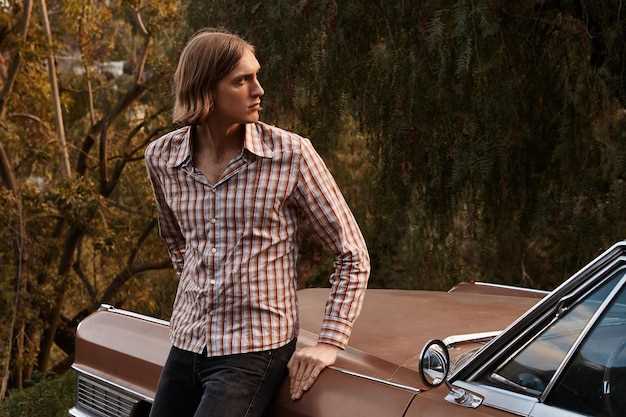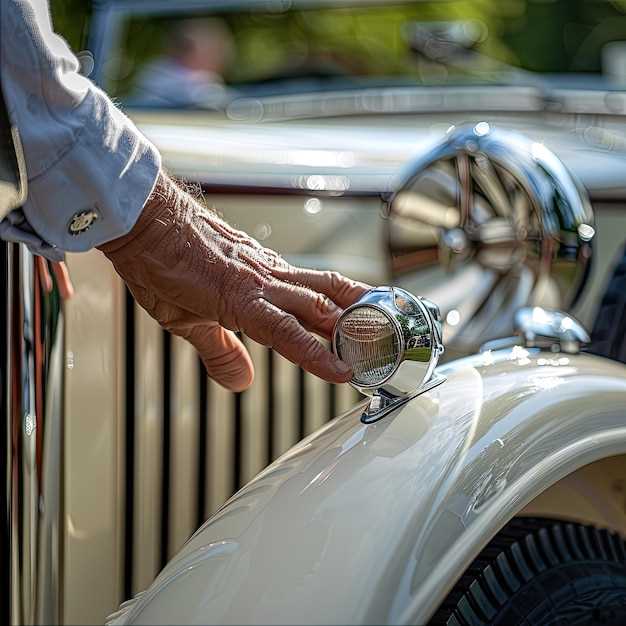How to Choose the Perfect Classic Car

Choosing a classic car can be a thrilling yet daunting experience for enthusiasts and first-time buyers alike. The allure of classic cars lies not only in their vintage aesthetics but also in their unique history and character. However, before diving into the world of buying classic cars, it is essential to understand the factors that will guide your decision-making process.
First and foremost, determining your budget is crucial. Classic cars can vary significantly in price, depending on their make, model, condition, and rarity. Setting a clear budget will help you narrow your options and focus on vehicles that align with your financial capabilities. Additionally, it’s important to account for ongoing costs such as maintenance, insurance, and potential restoration work, which can greatly impact your overall investment.
Next, consider the purpose of your purchase. Are you looking for a vehicle primarily for cruising on weekends, attending car shows, or perhaps as an investment? Each purpose will influence the type of classic car that will best suit your needs. Some buyers may prefer well-preserved models that are ready for the road, while others might be interested in projects needing significant restoration work.
Lastly, research is key. Familiarizing yourself with different classic car models, their reliability, and common issues will empower you as a buyer. Whether you are drawn to American muscle cars, European sports cars, or vintage trucks, understanding the history and performance characteristics of these vehicles will help ensure you make an informed choice.
Assessing Your Lifestyle and Driving Needs

When buying a classic car, it’s essential to assess your lifestyle and driving needs to ensure you make the right choice. Classic cars can vary significantly in terms of functionality, comfort, and intended use. Consider how often and in what capacity you plan to use your vehicle.
If you plan to drive your classic car daily, opt for a model that offers reliability and comfort. A vintage sedan or coupe might suit your needs better than a sports car, which, while exhilarating, may lack practicality for everyday use. Evaluate your commute distance, parking availability, and whether you require features such as air conditioning or modern conveniences.
For weekend enthusiasts, performance and aesthetics can take precedence. In this case, consider classic models known for their style and driving experience. However, be mindful of potential maintenance costs and parts availability, as these can add to your overall expense in the long run.
Consider your passion for restoration as well. Some buyers enjoy working on their classic cars, while others prefer a ready-to-drive model. Understanding your willingness to engage in maintenance or restoration projects can significantly influence your buying decision and the types of classic cars you look at.
Lastly, think about the social aspect of classic car ownership. Joining clubs or attending events might be important to you, so select a model that aligns with community gatherings. Engaging with fellow enthusiasts can enhance your experience, making the classic car lifestyle more rewarding.
Evaluating Condition and Authenticity Before Purchase
When buying a classic car, understanding its condition and authenticity is crucial to ensure a wise investment. This guide will help you navigate the key aspects to evaluate before making your purchase.
First, conduct a comprehensive inspection of the vehicle. Look for signs of rust, damage, or poor repairs that may indicate a larger underlying problem. Pay attention to the bodywork, as mismatched paint or uneven gaps can suggest previous accidents or poor restoration efforts.
Next, verify the authenticity of the classic car. Check the vehicle identification number (VIN) against relevant databases to ensure it matches the original documentation. Look for original parts and components, as these contribute significantly to the car’s value. If the car has undergone extensive modifications, it may impact both its authenticity and resale potential.
Performing a thorough mechanical inspection is also essential. Test the engine, transmission, and brakes to ensure everything operates smoothly. Look for leaks or unusual noises that might indicate future issues.
Additionally, consider consulting with an expert or a classic car appraiser who can provide an unbiased assessment of the vehicle’s condition and authenticity. Their expertise can be invaluable in avoiding costly mistakes during the purchasing process.
In conclusion, evaluating the condition and authenticity of a classic car prior to purchase is vital. By following these guidelines, you can make an informed decision and select a classic car that meets your expectations and investment goals.
Navigating Legalities and Ownership Costs

When buying a classic car, understanding the legalities involved and the potential ownership costs is crucial for prospective owners. This guide provides essential insights to help you make informed decisions.
Firstly, it is essential to verify the car’s title and registration. Ensure that the vehicle has a clear title without any liens, as this establishes your legal ownership. Depending on your jurisdiction, you may need to deal with specific regulations regarding emissions and modifications, which can affect your buying decision.
Import regulations should also be considered if you’re buying a car from another country. Some classic cars may require additional documentation or compliance with local standards. Researching these requirements beforehand will save time and potential legal headaches down the line.
Ownership costs extend beyond the purchase price of the car. Maintenance, insurance, and taxes are key components to keep in mind. Classic cars often demand more meticulous care, leading to higher maintenance costs. It is wise to budget for routine servicing, parts replacement, and potential restoration work.
Insurance for classic cars may differ significantly from standard vehicle coverage. Researching specialized classic car insurance providers will help you find a policy that suits your needs and offers adequate coverage. Additionally, many insurers consider the car’s value and your driving habits, affecting your premium rates.
Lastly, consider storage and transportation costs. Finding a suitable place to keep your classic car is vital, particularly if it requires protection from the elements. Also, if you plan to transport the vehicle for shows or events, understanding those logistics will help you budget accordingly.
In summary, navigating the legalities and costs associated with owning a classic car is an important aspect of your buying process. Taking the time to understand these factors will help ensure that your classic car experience is enjoyable and fulfilling.



